Today is a big day in our household and not just because we are making home made burgers to eat later although that in itself is a cause of celebration.
No, today is the day when we get a supermarket home delivery. This is a rare occurrence for us and is our first since possibly September last year. That’s not because we don’t buy food, we do but just not generally from supermarkets.
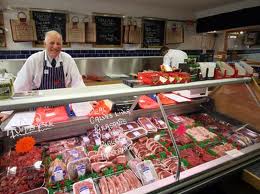
Where possible we like to buy our food from local stores. Meat from butchers, bread from bakers and everything else from local stores. We like to be careful with our money and that which we spend we like to give to local independent businesses so that the money goes to local families and stays somewhat in the community instead of big tax dodging corporations who beat up their suppliers for low prices. Of course this is a little more expensive and time consuming but in reality not very much as local stores have bargain sales and the quality from butchers and bakers is so much higher.
The price doesn’t have to be higher either. Sure, processed foods may be a little higher but markets and specialist stores can be cheaper. For example I buy bags of 25kg (nearly 60lbs) of potato which last for months and the price for each bag is £7.50. Yet even the cheapest supermarkets like ASDA or Tesco brainwash people into thinking that £1 for £1kg is good value. I know which I think is good value and it is the one that comes in biodegradable brown paper sack, not the horrid plastic bags.
We also grow a lot of fruit and vegetables in our little 50 foot back garden, most of which is lawn. The garden provides us year round. Some of the crops you can just pick when you want them like carrots, parsnips, potatoes whilst others can be frozen such as apples, pears, cherrys, plums, rhubarb and soft fruit. Others produce their harvest all in one go and lead us to eat nothing but that crop for days or weeks on end. I’m talking to you grapes and peas!
There is much talk about food waste but to be honest we don’t waste any food ever. Last year we got to May before we through out a single bin bag of rubbish and none of that was food waste. We eat everything we buy and in the unlikely event is starts going off, we boil it or re-use it somehow in a different form such as soups, stews or omelettes. It helps of course that we don’t buy a lot or go to supermarkets. Buying 3 for the price of 2 offers and the like just encourages the spending of extra money on extra food that will either be thrown out or make you fat.

That being said, this is one of the 2 or 3 days a year when we get a supermarket delivery.I surely don’t ever want to visit myself with all those parking problems and queues at the checkout till and people dilly-dallying in the aisles. Much of what we get is non food items that are hard to carry by hand such as 48 toilet rolls, big boxes of things that won’t go bad such as beers and tinned or frozen food. But still food is a vital component of the delivery and it is something we look forward to as it is not an every day occurrence.
There are a number of things that these deliveries remind me of. Of animals and vultures in Africa that can all feed off a giant dead beast until even the bones are gone. Or of a medieval port when the citizens get excited as they have heard the new ship as brought over exotic potatoes, sugar or tobacco. Perhaps also we are rather like stone-age people who get all excited when they get some woolly mammoth to eat as a special treat compared to their usual fare of berries or rabbit.
We both have our little treats that we look out for and eagerly scurry through the bags to make sure they were delivered that sometimes get eaten almost on the spot or at others get put to one side to be truly enjoyed and savoured.
Many of the things will be put away to supplement our home-grown and local purchases through the coming 4 or 5 months but just for a few days (or weeks knowing us) we’ll live extra well, even if extra well for us is probably not at all special to many in the Western world.
It might sound bad but it should suits our lifestyle and personality. We don’t get caught up in commercialism, we support our local businesses, save money, probably are healthier, and don’t waste any resources either our own or the planet.
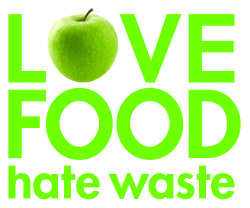
Recent reports show that U.K. consumers waste half of all food bought in supermarkets with £10 billion ($16 billion) or £480 per household. In 2011, 1.3 billion tonnes of food were wasted globally, that was one third of the total food in the world. Surely a crime when so many in poorer countries still suffer starvation and many in rich states such as Great Britain and the United States cannot afford food or find healthy food. It is not just us in the West though, every continent is increasingly wasting food. South America and the industrialised parts of Africa and Asia are catching up.
It didn’t use to be this way, even until 30 or 40 years ago, things used to be much different.
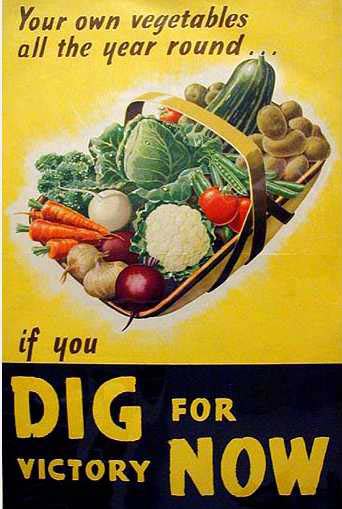
To be honest I’m not too bothered about eating food out of season. If I want raspberries or tomatoes, I am more than happy to wait until the summer, besides they taste so much nicer than those flown half way around the world. If I want meat I’ll go to the butchers. Nice personal service, fantastic quality and no crowds or queues of people. The seasons are wonderful for offering fresh, local and tasty food. I’m an adult, I have patience and can wait and enjoy what is naturally on offer today.
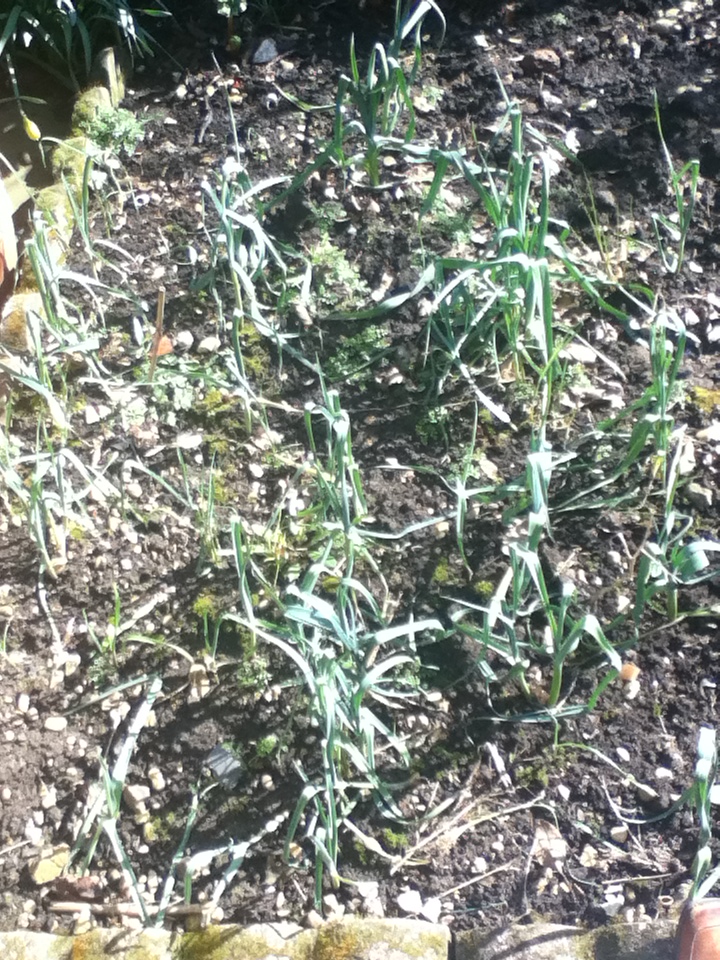
For now though, we have just had some heavy rain which has thawed the soil so I can pull up a few leeks which have been frozen in the ground for weeks. They will taste fantastic and none of them will go to waste. We’ll keep our hard earned money for something we’ll use and enjoy not throw out.
The real way that we live though is best summed up by this United States Wartime poster which sums up everything nicely.
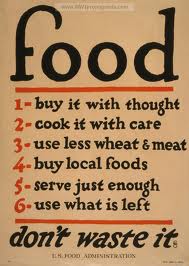
I fear I am one of those who contribute to food waste sometimes. I often buy too much, but never get around to eating it within the use by date. To be honest, one reason for waste is that many supermarkets seem to only put the food that is very close to its use by date, on the shelves, and leave the longer dates in the store room.
LikeLike
I think you’re right about supermarkets. Their whole model of business involves getting goods in stock and sold just before they expire or pretend they will expire perhaps to force people to throw food out and buy again.
We did an unscientific test a year or so ago and compared various home made jams with ones from supermarkets. The supermarket jams started going off even in the fridge after just a few weeks or a month at best. The homemade ones last for months and even years despite being opened from time to time and just stored both in and out of the fridge.
Surely as preserves even supermarket jams should last a long time. The fact that they don’t when our home-made ones do without us adding to them must show something is wrong with their products.
LikeLike
I take your point absolutely, but for those on very tight budgets it’s quite often more costly and time consuming to buy truly local all the time. I buy my fruit and veg locally and sometimes meat and will go into town to the huge indoor markets every so often to bulk buy. But it’s difficult. Mind you our waste is minimal because we can only afford to buy what we eat-excess food purchasing just doesn’t happen!
LikeLike
With the over-population of the planet mixed with soil degradation we really can’t afford to be making this much more food than we really need. While its appalling that there are so many families here in the UK that can’t afford to feed themselves, we need to make sure people think twice before wasting as much as they do.
Also, thanks for the like, this blog seems interesting so I have followed. Keep up the good work.
LikeLike
I whole-hardheartedly agree with your post! I wish I had a garden so I could grow my own produce. I’m working on that….
LikeLike
i love that 6 food frugality..food should be treated that way. 🙂
LikeLike
I love it too. We should print it off and stick it on our fridge. 🙂
LikeLike
i think so :).
LikeLike
Interesting post. We shop pretty much like you. Supermarkets for beer and toilet rolls. Local shops for veg that aren’t in the garden. No butchers as we are veg. Actually use the super for bread because it is better than local, although I used to make my own.
Your potatoes are seriously cheap. One of my next posts will be a price comparison one, but I just can’t compete with that. I thought the UK was expensive!! I paid 8.50€ for 5kgs.
LikeLike
Thank-you. Yes we try to make our own but to be honest we only get round to making 10 or 12 loaves a year which is not much in comparison to what we purchase.
I know, those potatoes are seriously cheap. The same place does 5kg of any combination of root vegatable (carrot, swede,turnip, leek, onion, cauliflower etc). The UK is expensive but I have to say, these prices are incredible from a small farm shop near where I worked. None of the big stores even come close price or quality wise.
LikeLike
We use to use an organic box scheme in the UK, but there were always too many carrots for us, no we do not eat carrot cake. So they would swap for something else which was good.
By the way, those are not all root veg, swede, turnip and cauliflower are brassicas, while leeks and onions can slip into a couple of categories. Carrots are root veg. I’m planning my next veg rotations after the beans (legumes) so I’ve got this in my head at the moment.
LikeLike
Oh dear, I am not very good on vegetable or plant types despite being an avid gardener. Crop rotation is the bane of my life as even though I doubled the size last year, the plot can only be 6 feet x 8 feet. Every year more and more of our patio pots end up going from flowers to vegetables to allow us to grow more 🙂
LikeLike
It’s easy. (she says having looked it up over the last few weeks and absorbed it yet again). In whatever order you do it, just get the sequence right. Brassicas are those green things plus turnips, swedes and radishes. Roots are carrots and potatoes if you want to plant those although unlikely given your cheap price, plus you can add the onions/leeks (at which I am pretty useless I must admit), the legumes are peas and beans, and, you cut those back to leave the nitrogen to fix in the soil for the next lot of brassicas 🙂
LikeLike
Thank-you, I had the basic idea right 🙂 I see from your site yours grow very well in the the mild climate.
Our problem is that we live in a modern terrace and the garden is north facing so it never gets much sun.
I bought some winter pansies and primroses in November, the sort that flower everywhere in the U.K. Only now do they look like they might do something. It is amazing how many weeks or even months the small south facing garden is ahead of the back. It is like Cornwall in the front and the Shetlands in the back 🙂
LikeLike
Oh and if you looked at my photos, the beans were in a pot.
LikeLike
Reading it felt like reading my own thoughts. I entirely agree. However worst part is Governments do not agree. But thought is in air. It should work. Excellent expression in precise prose.
LikeLike
Thank-you Sandeep. It is true, governments talk and pretend to do this but in reality they want mass consumption of poor quality food because it makes them and their friends money. I am sure that our leaders whether in India or Great Britain eat only healthy and small amounts of good quality local foods, we the people should do too.
LikeLike
I entirely agree. We are what we eat. We must take care of the food we consume.
LikeLike
Why do you think ‘our leaders’ eat only health and small amounts of good quality local foods?
LikeLike
I can’t imagine the Queen or David Cameron gets a 3 for 2 offer from somewhere like Asda for pizza or Iceland frozen sausages that even their MD said he wouldn’t eat himself as at that price they can’t be much good. I know for example the Queen and Prince Charles don’t buy excess food but consume responsibly… of course they can afford to both in time and money. When you see documentaries on television on food waste or those cheap shows on severely obese people and what they eat every day it is just appalling. Forget all that junk food and have a nice very cheap and tasty jacket potato and cheese/salad/beans whatever they like instead. It will probably save them money too.
LikeLike
A very thought provoking post, I especially liked the idea of patience when eating seasonally, everything really does taste much better! 🙂
LikeLike
Great post. Very thoughtful!
LikeLike
Hi,
I saw that you liked a post on my blog,
maybe we can follow each other?
You have a such a nice blog and this post really made me think of my food-behavior! x
LikeLike
Hi there, thank-you for your kind words. I am am glad you like it. I have just followed you too! x
LikeLike
excellent article. I so wish I had that kind of discipline. I love individual markets for meat, cheese bread and that kind of thing. The only times I seem to get to frequent them is when traveling in Europe. Now and than, in other states. I’d like to reblog this it’s a good message.
🙂
LikeLike
Hi there, I am glad that you liked my article. Please feel free to reblog it.
I know, these markets are great to see and smell so many different cheeses or breads and meats. So much more tempting than some pre-packaged products.
Thanks for your passing by and your comment.
LikeLike
Reblogged this on Words…..thoughts…..experiences…..humor and commented:
Wonderful article I would like to share …….
LikeLike
I like this article! My parents also plant some chilly, some fruits, at their backyard, even exchange fruits among neighbors! So yes I like Ur article! Thank’s for sharing, thank’s for visiting me and greetings 🙂
LikeLike
Thanks for stopping by my blog and thank you for this post Stephen. Global food waste is obscene and my family and I must claim our part of the guilt. Did you get a chance to check out my post “the locavore’s dilema” http://richardmedernach.wordpress.com/2012/06/25/the-locavores-dilema/? I’d like to hear your thoughts.
LikeLike
I just read you post and I really agree with it. Maybe we as people and consumers should start realising that food is important as it goes in our bodies and that those of us in the West should maybe eat less of it but make sure what we do eat is of a higher quality.
I liked what you said about how growing your own crops makes you think of our Agrarian past. I have that same thought in my head thinking that it connects my to ancestors tens or thousands of years ago. There isn’t much these days that gives that sense of connection.
Thanks for visiting my blog and for your comment.
LikeLike
What a great and thought provoking post. I always thought I was quite responsible with food, but you’ve given me some new ideas….big sacks of potatoes being one! We grow lots of veg and fruit in the summer, but are lacking in the winter months. Can’t wait for the greenhouse to be full of tomatoes and fresh basil again…dreaming of summer 🙂 Having three dogs also seriously cuts down on food waste as they get any leftovers!
LikeLike
Thank-you. Yes dogs are a great way to cut down on food waste. I have to say that they are more efficient than anything I can come up with 🙂
I hope we don’t have to dream of summer for too long. Someone needs to cut us some slack as our weather is bad enough anyway with us having snow and frozen vegetable patches in the last days of March.
LikeLike
Couldn’t agree more.
LikeLike
Thanks.
LikeLike
i am intrigued by you saying u can keep potatoes for months. how do u do that? the ones i buy start sprouting buds.
LikeLike
I can only put it down to 4 things. I try to get them from farm shops so I guess they are already much fresher than some of those in supermarkets. I always keep them in the cold and dark, a garden shed is a good help. We also put ours in a cold kitchen cupboard next to the back wall and door. I think really important thing is to buy them in the old fashioned brown paper sacks. I always read that there is something in the brown paper material that helps to preserve potatoes and it really does. If I buy a kilo from Asda or Tesco they start sprouting shoots in 2 or 3 weeks.
LikeLike
are the ones u buy cleaned of soil? i wonder if they have soil coating it , it keeps better. either that or the washing with chemicals which the supermarkets must use affect the shelf live. or the supermarkets might even artificially induce the ripening… in that it is green potatoes that are harvested and batches are forced to ripen as and when they are needed.
LikeLike
They do have much more soil on them than in supermarket potatos. You have to give them a good wash sometimes.
You may be onto something about supermarkets artificially inducing ripening, I am sure I have read that about supermarket fruit.
LikeLike